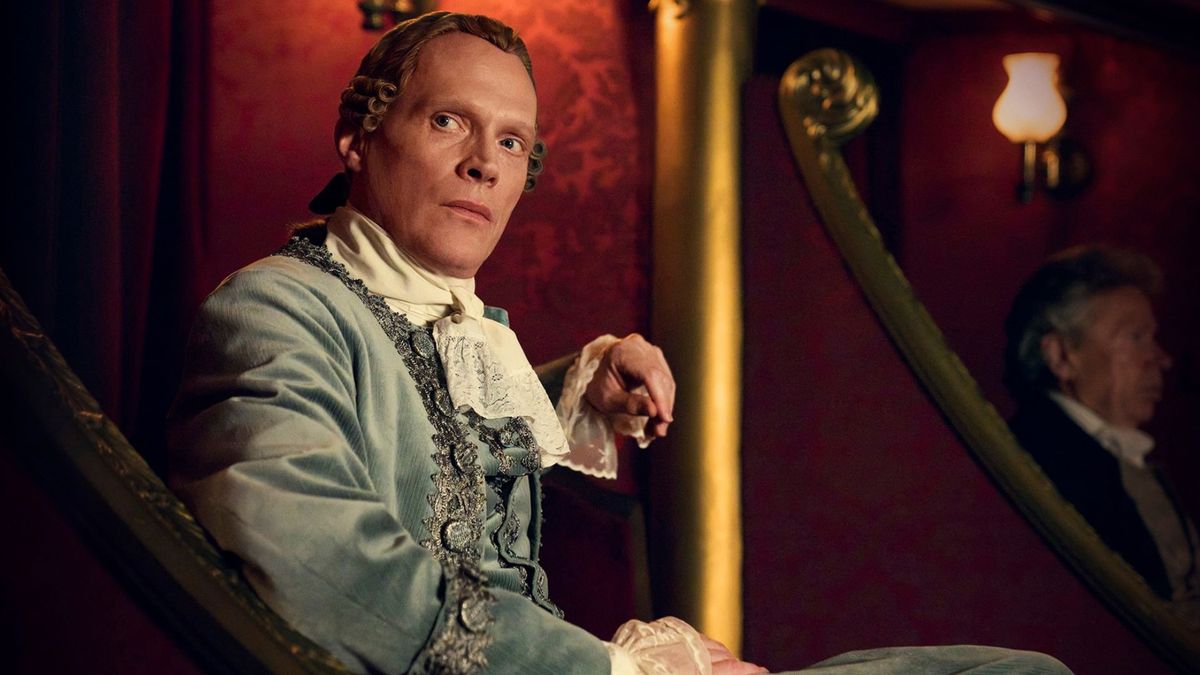Harris Yulin passed away this week at the age of 87. The Broadway star had a litany of beloved and memorable film and TV roles to his name, like a fan-favorite turn in Ghostbusters II—but Star Trek fans will forever remember him for his incredible turn as a traumatized Cardassian office clerk in one of Deep Space Nine‘s first all-time classics, “Duet”.
Occasionally a victim of its own success in the eyes of Star Trek fandom, Deep Space Nine‘s remarkable dramatic arcs through its back half exploring the Federation at war with the Dominion occasionally means that some fans perceive its earliest seasons—more broadly about the sociopolitical tension between the recently liberated Bajoran people and Starfleet’s presence to guide Bajor into potential Federation membership—as a slog to get through before you hit the real good stuff. But of several early episodes that shine just as brightly as DS9‘s very best, “Duet,” the 19th episode of season one, absolutely is the one that shines brightest.
 © Paramount
© ParamountIn “Duet” Yulin plays a delicious dual role. He’s initially introduced as the Cardassian file clerk Aamin Marritza, treated on DS9 for a terminal disease largely contracted by prisoners and workers at the Gallitep concentration camp. Immediately recognised by Kira, herself one of the resistance members who helped liberate Gallitep, her interrogation leads her to believe that the haughty Marritza—who after initial attempts at obfuscation, makes no qualms of hiding that he worked at the camp—is actually an assumed identity of the camp’s infamous commander, Gul Darhe’el. Confronted with Kira’s evidence, “Marritza”‘s mask falls, taking full, angry, and insidious credit for being Darhe’el.
If that was all there was to Yulin’s role in “Duet” it would still be a remarkable turn. He fills Marritza/Darhe’el with an incredible sense of simmering disdain, a man simultaneously trying to shirk his history at Gallitep from a furious Kira’s eyes, while also confident enough in his belief to casually, even proudly, embrace an alternate history of Gallitep’s atrocities. Yulin’s chemistry having Nana Visitor’s Kira as a scene partner is electric, her turmoil between the rightful rage Kira feels as a Bajoran and her duties as an objective officer aboard DS9 crashing against the Cardassian’s calm collection. Isolated in Odo’s small holding cells, Darhe’el becomes a specter who lingers over the episode and Kira alike, plaguing her moral quandary over whether or not she should help someone responsible for heinous atrocities against her people.
But the character has a further layer to him: it’s Darhe’el that is the assumed persona. Marritza really did work in the administrative wings of Gallitep, but, like Kira, is sickened to his soul by his complicity in the war crimes that occurred there. Dying of his disease anyway, Marritza went through cosmetic surgery to take on Darhe’el’s likeness, targeted Kira for her connection to the resistance cell that liberated Gallitep, and then chose to sacrifice himself to the Bajoran authorities in an attempt to get public condemnation for the crimes that Darhe’el committed.
In an instant, Yulin’s performance switches, the arrogance and collection that had defined his role up to this point shattering to reveal a truly haunted man beneath many masks. After spending much of the episode horrified by him, Marritza becomes immediately and tragically sympathetic, a mirror held up against Kira as someone still broken by their attempts to process what they experienced during Cardassia’s rule on Bajor. That Yulin is able to sell that change as convincingly as he had first masked his “true” identity as Darhe’el is remarkable, and it climaxes with an incredibly poignant scene where he breaks down in his cell in front of Kira.
“Duet” ends in tragedy regardless. Unable to bring herself to “help” Marritza face trial as Darhe’el, Kira has to let the grieving man go—only for him to be murdered on DS9’s promenade by a vengeful Bajoran, who, unlike her, could not see past the grief they all bore during occupation, whether it was Bajorans or Cardassians caught in their own webs of moral complicity. Deep Space Nine would go on to do a lot in exploring the moral nuances behind even the broad, clear-cut horrors of the Cardassian occupation, the Dominion War beyond it, and their own real-world parallels: but it was Yulin who helped to first put put a complex and sympathetic face on the Cardassian perspective, and did so with such grace to give the series one of its greatest hours.
Want more io9 news? Check out when to expect the latest Marvel, Star Wars, and Star Trek releases, what’s next for the DC Universe on film and TV, and everything you need to know about the future of Doctor Who.










 English (US) ·
English (US) ·